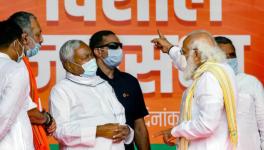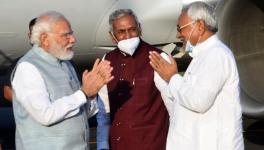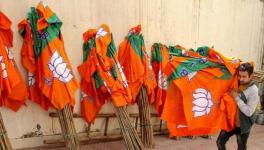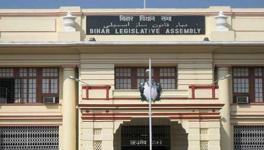How Effective Is Bihar’s Liquor Ban?
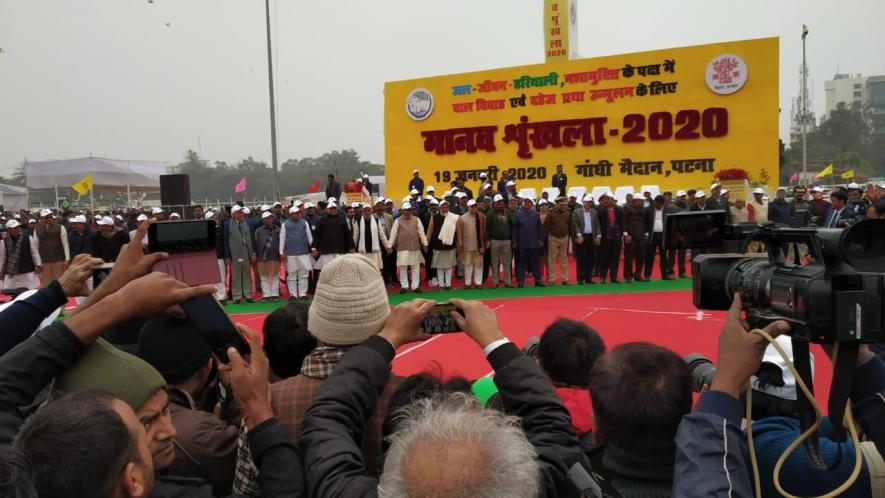
Nitish Kumar inaugurating ‘Human Chain’ event in Patna Pic Credit- Dev Raj, The Telegraph
Responding to the call of Chief Minister Nitish Kumar to support his government’s efforts towards environment conservation, about five crore people from Bihar participated in the initiative to form a maanav shrinkhala (human chain) on Sunday. It was also aimed at spreading awareness about liquor prohibition and to oppose social evils like child marriage and dowry. The event was inaugurated by Kumar at Patna’s Gandhi Maidan. The length of the human chain was reported to be 18,000 km.
However, the ground reality remains that be it through cross-border smuggling or ferrying using various methods within the state, liquor supply has defied prohibition imposed by the state government. Episodes of death owing to countrymade liquor have also been reported from parts of the state in the past.
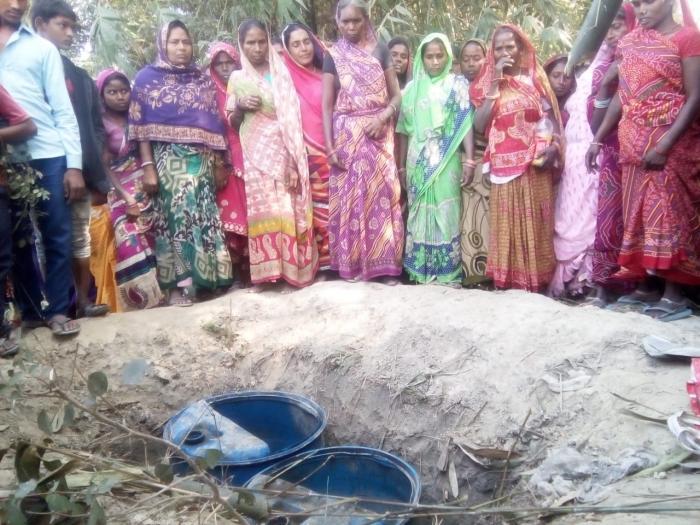
Country liquor stored in drums kept hidden in a pit
Ajay Sahni, a daily wage worker from Muzaffarpur district, lost his elder brother Nand Lal Sahni on January 1 after falling ill due to consumption of country liquor. Speaking to NewsClick, he said: “The liquor was made using fertilisers such as urea powder mixed with jaggery and water. In far-flung areas surrounded by bamboo forest, these people kept this liquor to boil under direct sunlight. That gave it a pungent odour which even disturbed the people nearby. After complaints of villagers falling ill, women from our village went to bust the illegal manufacturing of country liquor. It was stored in large drums and from there, it was supplied to nearby villages.”
The villagers claim that they have collectively written to the chief minister about this issue and have registered several complaints at the nearest police station, but action was “purposely” delayed. Sahni said, “We further complained to the DSP after which the police station in-charge paid a visit to us—but to no avail. In the book of the Bihar government, liquor is banned, but in reality, it’s very much within the reach of the rich as wells as poor. Rich people can afford branded liquor, which doesn’t harm their lives, but poor people ingest low-cost liquor made using life-threatening chemicals.”
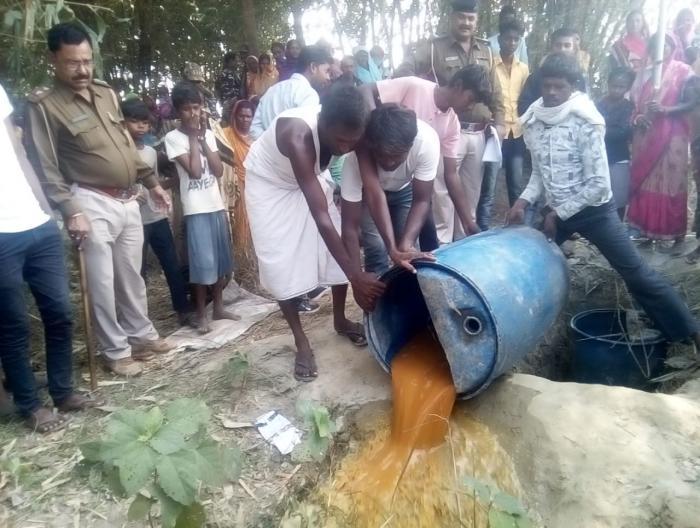
Villagers in Muzaffarpur district dumping the country-made spurious liquor
Villagers confirmed death of at least eight people due to the consumption of country-made liquor. It is also believed that local police officials work hand in hand with liquor mafias and share the profit.
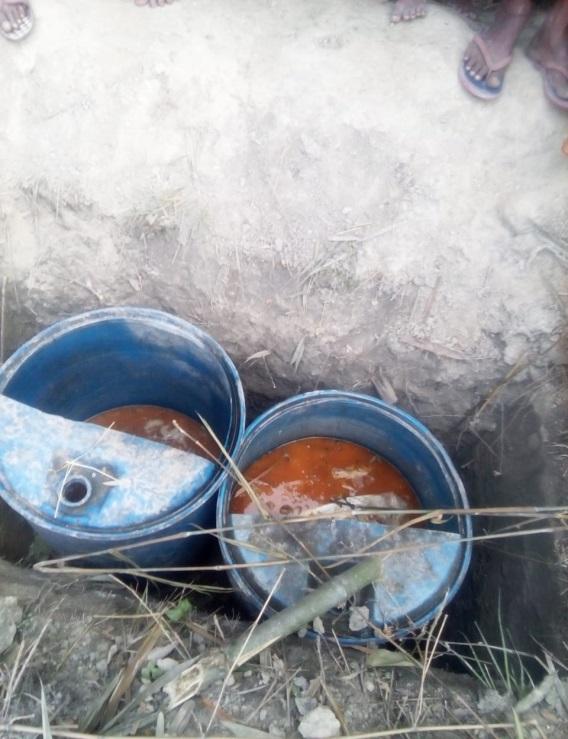
Spurious liquor kept hidden in pits
The Motipur block of the same district also witnessed seizure of 300 litres of raw spirit by the police a week ago. But the bootleggers managed to flee before the raid. Last month, 300 cartons worth Rs 20 lakh of liquor was reportedly seized from the same district.
Muzaffarpur district in Bihar along with Gopalganj, East Champaran, Kaimur and Kishanganj has remained infamous for rampant illegal liquor trade of Indian Made Foreign Liquor (IMFL) or country made liquor. In 2016, immediately after the ban, 15 people from Gopalganj district of Bihar had succumbed to death after consuming hooch, the adulterated version of country made liquor. Twenty-five policemen were found guilty of dereliction of their duty.
It must be noted that there are strict penal provisions in place for any violation of the Act. For example, the manufacturers and suppliers of illicit liquor will be awarded death penalty if the spurious liquor causes any death.
The alcohol ban in Bihar was implemented through the Bihar Prohibition and Excise Act that came into effect on April 1, 2016. The Act states that “no person shall manufacture, bottle, distribute, transport, collect, store, possess, purchase, sell or consume any intoxicant or liquor”.
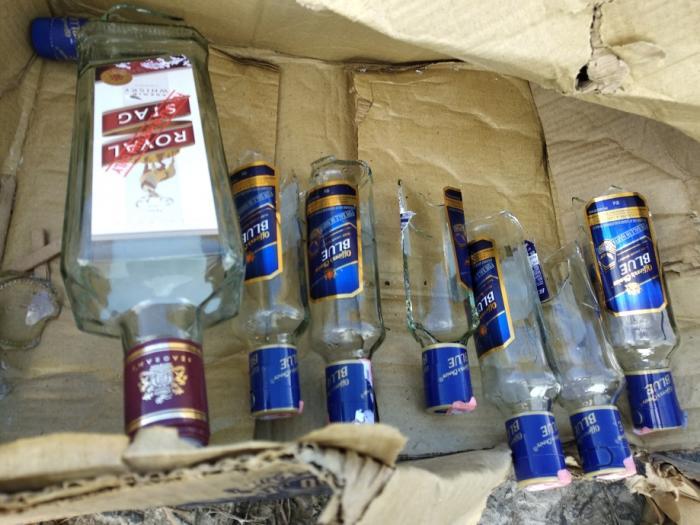
Broken Indian Made Foreign Liquor (IMFL) bottles being thrown into the farms
After prohibition, liquor is being sold abundantly in the black market statewide at high prices. The liquor ban also led to emergence of gangs of local bootleggers across the state and increasing corruption in the Bihar police force. It has also been reported that drinkers and bootleggers anticipating raids by the police throw liquor bottles into farm fields to evade arrests. Bootleggers have been ferrying liquor bottles by storing them in tyre tubes, ambulance, goods container, school bags, or postal parcel consignment etc. Earlier this year, the Patna High Court pointed out that there were over 2.06 lakh cases pending in Bihar courts, pertaining to violation of prohibition laws and it was choking the judiciary.
To summarise, Bihar government is taking pride in a policy even though it is a paralysed one. When, on the one hand, people continue to lose lives owing to low-quality and poisonous liquor, a facade of a human chain is only going to eclipse the ground reality for a short time.
Get the latest reports & analysis with people's perspective on Protests, movements & deep analytical videos, discussions of the current affairs in your Telegram app. Subscribe to NewsClick's Telegram channel & get Real-Time updates on stories, as they get published on our website.









